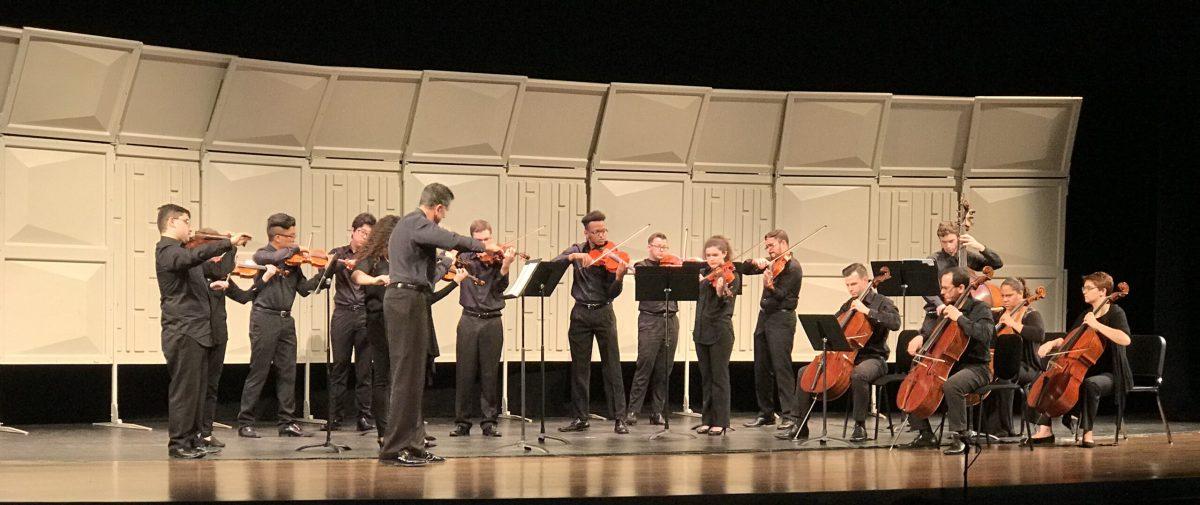This past Sunday, the Rowan University String Ensemble pulled on the heartstrings of their audience. In collaboration with the University of Delaware, the ensemble presented “Remembering the Past, Anticipating the Future,” continuing Rowan’s “Music of Social Justice” series.
Dr. Timothy Schwarz, director and head of strings, started the performance off discussing how the idea for this performance began over a drink. He met with the music director from the University of Delaware and talked about a possible collaboration with both of their departments to express a deeper meaning of social justice.
The first piece, Syrian composer Kareem Roustom’s “Dabke,” was meant to reflect community engagement.
Graduate student Diego Villamil took part in the performance as a violinist.
“I have just started this semester with the string ensemble,” Villamil said. “We work hard in preparation for this production. For us, we feel pretty well [about] our performance today.”
A performance by Michal Schmidt and Lawrence Stomberg followed, titled “Concerto for Two Cellos and String Orchestra” by Antonio Vivaldi.
Schmidt is a cellist and pianist who teaches cello and chamber music at numerous institutions including Haverford College, Bryn Mawr College and the University of Pennsylvania. He became a part of the Rowan University faculty in 2017.
Stomberg is a cellist for the Serafin String Quartet and has been a cello professor at the University of Delaware since 2004.
During the last set performed, emotions were felt when the string ensemble played “Chamber of Symphony” by Dmitri Shostakovich.
Dr. James Heinzen, a history professor at Rowan, gave a speech that gave insight into the background of this Russian composer. Shostakovich lived during a period of revolution under the rule of Joseph Stalin. This was a time of great terror and forced industrialization which emphasized mass arrests and defamation. Despite this, great art emerged, as evidenced in this piece played by the ensemble.
After Stalin’s rule, Shostakovich experienced Nazi invasion and absolute destruction. He dedicated his piece to the remembrance of Jewish citizens and to his devastated home city.
The title of the program, “Remembering the Past, Anticipating the Future,” was reflected in this closing piece, which parallels modern Russian control of Syria.
Rachel Johns, a music education graduate student, came to the production in support of the string ensemble.
“I played with the string ensemble for a few years,” Johns said. “I feel that they did really well. I really enjoyed the program they chose.”
For questions/comments about this story, email [email protected] or tweet @thewhitonline.

























































































































































!["Working with [Dr. Lynch] is always a learning experience for me. She is a treasure,” said Thomas. - Staff Writer / Kacie Scibilia](https://thewhitonline.com/wp-content/uploads/2025/04/choir-1-1200x694.jpg)









































